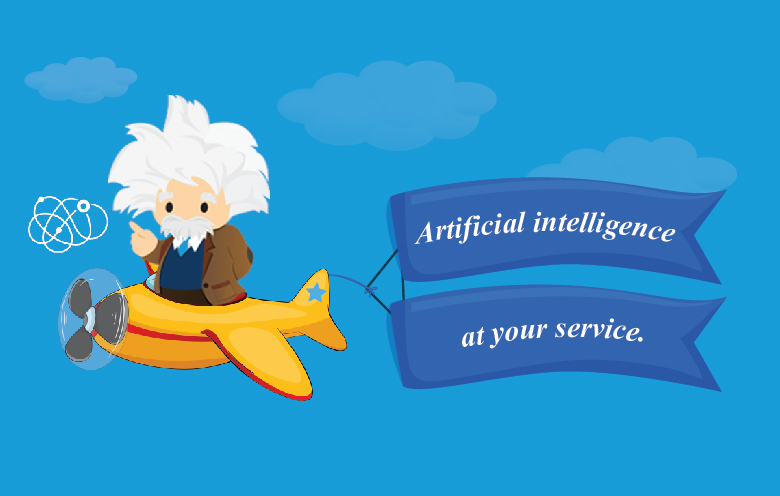TECHNOLOGY
Einstein, Empathy and AI

Albert Einstein once said: “The ideals that have lighted my way, and time after time have given me new courage to face life cheerfully, have been Kindness, Beauty and Truth.”
Kindness, beauty and truth. You don’t often hear these words in the digital world. How do we integrate these life essentials in technologies like artificial intelligence (AI), machine learning, edge computing, internet of things (IoT) and data at scale? Technology, after all, makes things less personal, right?
One company is working hard to disprove this assumption. Not only that, they have a direct tie to Einstein himself.
A hundred years after Einstein shared his views about human existence, NVIDIA is on a path to connecting kindness, beauty and truth with AI as it explores the human qualities of inference, context and nuance in supportive technologies. As for the famous scientist with the wild white hair, NVIDIA has proven he was right about his prediction of gravitational waves, which can now be seen by astronomers for the first time at the Laser Interferometer Gravitational-wave Observatory (LIGO).
This makes sense. After all, NVIDIA has powered 352 out of 500 of the world’s supercomputers.
NVIDIA has long been known for gaming technologies – it invented the graphics processing unit (GPU) in 1999, triggering the steep growth of the gaming market (much to the chagrin of many parents everywhere) with superior computer graphics and intuitive AI.
Chances are you’ve touched NVIDIA’s tech some time along your day today. Since its launch in 1993, it has been the “AI engine” for thousands of companies, including Google, Microsoft, Amazon, Meta, Alibaba, Tencent, Pinterest, PayPal, Snap and Spotify. The full-stack computer company fuels data center-scale computing solutions with the help of some 20,000 employees in more than 50 countries.
GPU-powered AI solutions impact critical insights needed for businesses to make better decisions, improve customer service and reduce fraud. The technology is particularly impactful in financial services where around 80% of firms are using artificial intelligence to improve services. NVIDIA’s State of AI in Financial Services 2022 Trends Report reveals that 8 of 10 financial firms are using AI to reduce the estimated $5 trillion in global fraud each year and that conversational AI is being used to mimic customer service representatives in self-service chatbots and call center virtual agents by many banks. AI-led recommendation systems are delivering hyper-personalized experiences to bank customers by giving personalized recommendations.
Conversational AI, however, is where GPU technology can make a significant difference. To date, it has often been seen as deeply flawed by many people, myself included.
Tell me if this sounds familiar. You call a company hoping to resolve an issue. Its AI-driven customer service agent answers in a monotone voice. Soon thereafter, the exchange goes off the rails. You’re asking if they have a product in stock and the agent is asking if you want to make a return. Finally, you request a live agent. I’ve gotten lost in the digital loop of big companies when connecting with a real human being is akin to hitting the jackpot.
What’s missing? From moment one, it’s empathy.
Just to be on the same page, Merriam Webster defines empathy as “the action of understanding, being aware of, being sensitive to, and vicariously experiencing the feelings, thoughts, and experience of another.”
Feeling understood by another is the point of NVIDIA’s article “May AI Help You? Square Takes Edge Off Conversational AI With GPUs”, which explores AI’s unique potential for going beyond the facts, entering the realm of “sympathetic listening.”
As more companies adopt conversational AI, empathy plays a larger role in the customer experience – and, ultimately, growth factors like profitability, customer retention and brand equity. According to Zendesk, 81% of consumers say a positive customer service increases the chances of them making another purchase. AI is more than taking care of business. Customers want to feel good about the exchange and not like a “number.” They want a kinder, more memorable touch point that resolves their real problem and makes them feel “seen.”
Can digital assistants and digital agents get us there?
With the help of NVIDIA, the popular payment platform Square is making progress. You could say NVIDIA invented one of AI’s greatest solutions – the GPU. The company’s article points out that Square’s tech team “started training AI models at Eloquent on single NVIDIA GPUs running CUDA (a programming interface) in desktop PCs.” Eloquent is an NLP startup acquired by Square in 2019. In addition to the GPU enabled desktop stations, large model training jobs were run on NVIDIA GPUs in the AWS cloud service. The results were impressive on both training and inference fronts. In particular, Square found “inference jobs on average-size models run twice as fast on GPUs than CPUs. Inference on large models such as RoBERTa run 10x faster on the AWS GPU service than on CPUs.”
Progress? Listen to this: Merritt writes that “Square Assistant can understand and provide help for 75 percent of customer’s questions, and it’s reducing appointment no-shows by 10 percent.”
Trust takes so much time to build. One poor experience breaks it immediately. In an ideal world, our conversations with others are fluid as long as the level of service meets our satisfaction. When an experience falls short, the ramifications interrupt our perception of a brand or worse.
Like New Year’s Eve 2021 when I made a large payment to my house remodeler via check. I sent the check a week ahead to ensure it can be processed before the end of the year. My bank texted me to confirm my identity. I verified that the payment was legit. More than an hour later and seven – SEVEN – transfers from one digital assistant to another and then to a live agent later, the issue was finally resolved. By that time, however, it was already the new year. As a small business owner, that one day delay had implications on taxes and a supplier’s revenue.
Many consider Einstein as a great scientist, but I think of him as a great thinker. He understood the power of the human touch. In one essay, he wrote: “When we survey our lives and endeavors we soon observe that almost the whole of our actions and desires are bound up with the existence of other human beings.”
When AI understands the nuances of language, we will have taken the next big leap. Intuitive, empathetic AI is upon us. The question is: will it inspire greater kindness, beauty and truth for those who use it?
Explore NVIDIA’s AI solutions and enterprise-level AI platforms driving the future of financial services.
Source link
TECHNOLOGY
Next-gen chips, Amazon Q, and speedy S3

AWS re:Invent, which has been taking place from November 27 and runs to December 1, has had its usual plethora of announcements: a total of 21 at time of print.
Perhaps not surprisingly, given the huge potential impact of generative AI – ChatGPT officially turns one year old today – a lot of focus has been on the AI side for AWS’ announcements, including a major partnership inked with NVIDIA across infrastructure, software, and services.
Yet there has been plenty more announced at the Las Vegas jamboree besides. Here, CloudTech rounds up the best of the rest:
Next-generation chips
This was the other major AI-focused announcement at re:Invent: the launch of two new chips, AWS Graviton4 and AWS Trainium2, for training and running AI and machine learning (ML) models, among other customer workloads. Graviton4 shapes up against its predecessor with 30% better compute performance, 50% more cores and 75% more memory bandwidth, while Trainium2 delivers up to four times faster training than before and will be able to be deployed in EC2 UltraClusters of up to 100,000 chips.
The EC2 UltraClusters are designed to ‘deliver the highest performance, most energy efficient AI model training infrastructure in the cloud’, as AWS puts it. With it, customers will be able to train large language models in ‘a fraction of the time’, as well as double energy efficiency.
As ever, AWS offers customers who are already utilising these tools. Databricks, Epic and SAP are among the companies cited as using the new AWS-designed chips.
Zero-ETL integrations
AWS announced new Amazon Aurora PostgreSQL, Amazon DynamoDB, and Amazon Relational Database Services (Amazon RDS) for MySQL integrations with Amazon Redshift, AWS’ cloud data warehouse. The zero-ETL integrations – eliminating the need to build ETL (extract, transform, load) data pipelines – make it easier to connect and analyse transactional data across various relational and non-relational databases in Amazon Redshift.
A simple example of how zero-ETL functions can be seen is in a hypothetical company which stores transactional data – time of transaction, items bought, where the transaction occurred – in a relational database, but use another analytics tool to analyse data in a non-relational database. To connect it all up, companies would previously have to construct ETL data pipelines which are a time and money sink.
The latest integrations “build on AWS’s zero-ETL foundation… so customers can quickly and easily connect all of their data, no matter where it lives,” the company said.
Amazon S3 Express One Zone
AWS announced the general availability of Amazon S3 Express One Zone, a new storage class purpose-built for customers’ most frequently-accessed data. Data access speed is up to 10 times faster and request costs up to 50% lower than standard S3. Companies can also opt to collocate their Amazon S3 Express One Zone data in the same availability zone as their compute resources.
Companies and partners who are using Amazon S3 Express One Zone include ChaosSearch, Cloudera, and Pinterest.
Amazon Q
A new product, and an interesting pivot, again with generative AI at its core. Amazon Q was announced as a ‘new type of generative AI-powered assistant’ which can be tailored to a customer’s business. “Customers can get fast, relevant answers to pressing questions, generate content, and take actions – all informed by a customer’s information repositories, code, and enterprise systems,” AWS added. The service also can assist companies building on AWS, as well as companies using AWS applications for business intelligence, contact centres, and supply chain management.
Customers cited as early adopters include Accenture, BMW and Wunderkind.
Want to learn more about cybersecurity and the cloud from industry leaders? Check out Cyber Security & Cloud Expo taking place in Amsterdam, California, and London. Explore other upcoming enterprise technology events and webinars powered by TechForge here.
TECHNOLOGY
HCLTech and Cisco create collaborative hybrid workplaces

Digital comms specialist Cisco and global tech firm HCLTech have teamed up to launch Meeting-Rooms-as-a-Service (MRaaS).
Available on a subscription model, this solution modernises legacy meeting rooms and enables users to join meetings from any meeting solution provider using Webex devices.
The MRaaS solution helps enterprises simplify the design, implementation and maintenance of integrated meeting rooms, enabling seamless collaboration for their globally distributed hybrid workforces.
Rakshit Ghura, senior VP and Global head of digital workplace services, HCLTech, said: “MRaaS combines our consulting and managed services expertise with Cisco’s proficiency in Webex devices to change the way employees conceptualise, organise and interact in a collaborative environment for a modern hybrid work model.
“The common vision of our partnership is to elevate the collaboration experience at work and drive productivity through modern meeting rooms.”
Alexandra Zagury, VP of partner managed and as-a-Service Sales at Cisco, said: “Our partnership with HCLTech helps our clients transform their offices through cost-effective managed services that support the ongoing evolution of workspaces.
“As we reimagine the modern office, we are making it easier to support collaboration and productivity among workers, whether they are in the office or elsewhere.”
Cisco’s Webex collaboration devices harness the power of artificial intelligence to offer intuitive, seamless collaboration experiences, enabling meeting rooms with smart features such as meeting zones, intelligent people framing, optimised attendee audio and background noise removal, among others.
Want to learn more about cybersecurity and the cloud from industry leaders? Check out Cyber Security & Cloud Expo taking place in Amsterdam, California, and London. Explore other upcoming enterprise technology events and webinars powered by TechForge here.
TECHNOLOGY
Canonical releases low-touch private cloud MicroCloud

Canonical has announced the general availability of MicroCloud, a low-touch, open source cloud solution. MicroCloud is part of Canonical’s growing cloud infrastructure portfolio.
It is purpose-built for scalable clusters and edge deployments for all types of enterprises. It is designed with simplicity, security and automation in mind, minimising the time and effort to both deploy and maintain it. Conveniently, enterprise support for MicroCloud is offered as part of Canonical’s Ubuntu Pro subscription, with several support tiers available, and priced per node.
MicroClouds are optimised for repeatable and reliable remote deployments. A single command initiates the orchestration and clustering of various components with minimal involvement by the user, resulting in a fully functional cloud within minutes. This simplified deployment process significantly reduces the barrier to entry, putting a production-grade cloud at everyone’s fingertips.
Juan Manuel Ventura, head of architectures & technologies at Spindox, said: “Cloud computing is not only about technology, it’s the beating heart of any modern industrial transformation, driving agility and innovation. Our mission is to provide our customers with the most effective ways to innovate and bring value; having a complexity-free cloud infrastructure is one important piece of that puzzle. With MicroCloud, the focus shifts away from struggling with cloud operations to solving real business challenges” says
In addition to seamless deployment, MicroCloud prioritises security and ease of maintenance. All MicroCloud components are built with strict confinement for increased security, with over-the-air transactional updates that preserve data and roll back on errors automatically. Upgrades to newer versions are handled automatically and without downtime, with the mechanisms to hold or schedule them as needed.
With this approach, MicroCloud caters to both on-premise clouds but also edge deployments at remote locations, allowing organisations to use the same infrastructure primitives and services wherever they are needed. It is suitable for business-in-branch office locations or industrial use inside a factory, as well as distributed locations where the focus is on replicability and unattended operations.
Cedric Gegout, VP of product at Canonical, said: “As data becomes more distributed, the infrastructure has to follow. Cloud computing is now distributed, spanning across data centres, far and near edge computing appliances. MicroCloud is our answer to that.
“By packaging known infrastructure primitives in a portable and unattended way, we are delivering a simpler, more prescriptive cloud experience that makes zero-ops a reality for many Industries.“
MicroCloud’s lightweight architecture makes it usable on both commodity and high-end hardware, with several ways to further reduce its footprint depending on your workload needs. In addition to the standard Ubuntu Server or Desktop, MicroClouds can be run on Ubuntu Core – a lightweight OS optimised for the edge. With Ubuntu Core, MicroClouds are a perfect solution for far-edge locations with limited computing capabilities. Users can choose to run their workloads using Kubernetes or via system containers. System containers based on LXD behave similarly to traditional VMs but consume fewer resources while providing bare-metal performance.
Coupled with Canonical’s Ubuntu Pro + Support subscription, MicroCloud users can benefit from an enterprise-grade open source cloud solution that is fully supported and with better economics. An Ubuntu Pro subscription offers security maintenance for the broadest collection of open-source software available from a single vendor today. It covers over 30k packages with a consistent security maintenance commitment, and additional features such as kernel livepatch, systems management at scale, certified compliance and hardening profiles enabling easy adoption for enterprises. With per-node pricing and no hidden fees, customers can rest assured that their environment is secure and supported without the expensive price tag typically associated with cloud solutions.
Want to learn more about cybersecurity and the cloud from industry leaders? Check out Cyber Security & Cloud Expo taking place in Amsterdam, California, and London. Explore other upcoming enterprise technology events and webinars powered by TechForge here.
-

 PPC7 days ago
PPC7 days ago10 Most Effective Franchise Marketing Strategies
-

 MARKETING5 days ago
MARKETING5 days agoEffective Communication in Business as a Crisis Management Strategy
-

 SEARCHENGINES6 days ago
SEARCHENGINES6 days agoGoogle Won’t Change The 301 Signals For Ranking & SEO
-

 SEARCHENGINES7 days ago
SEARCHENGINES7 days agoGoogle Again Says Ignore Link Spam Especially To 404 Pages
-

 SEO5 days ago
SEO5 days agobrightonSEO Live Blog
-

 PPC6 days ago
PPC6 days ago9 Ecommerce Trends to Boost Your Business in 2024
-

 SEO7 days ago
SEO7 days agoMeasuring Content Impact Across The Customer Journey
-

 SEO6 days ago
SEO6 days agoHow To Write ChatGPT Prompts To Get The Best Results






You must be logged in to post a comment Login